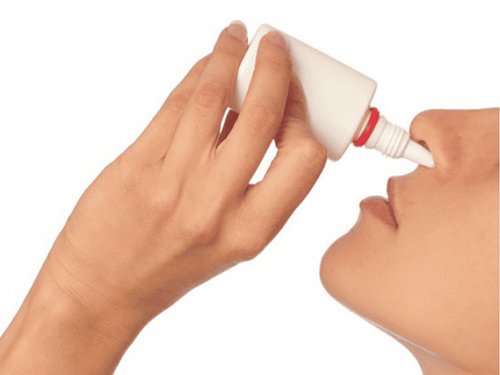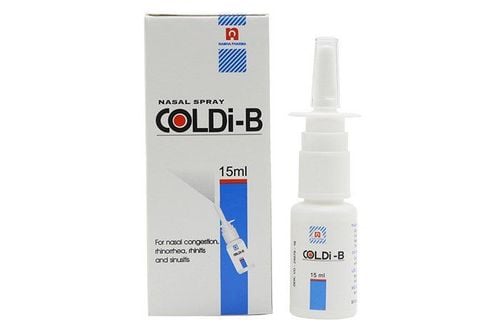This is an automatically translated article.
Lodirein is used to treat respiratory diseases, thin mucus and help the body get rid of phlegm more easily through the cough reflex. Let's learn about the uses of Lodirein through the article below.1. Uses of Lodirein
Lodirein drug has the main ingredient Carbocistein 375 mg, is made in the form of hard capsules.
Carbocisteine has a sputum-thinning effect by severing the disulfures cross-linking mucin peptide chains, which increases the viscosity of secretions. This property will help reduce the viscosity of the mucus, change the consistency of the sputum for easier expulsion through the cough reflex.
Lodirein also has another effect that is antibacterial, making it harder for bacteria to cause infections in the chest.
2. Indications and contraindications to taking Lodirein Lodirein is used in the following cases:
Respiratory diseases with increased sputum secretion such as acute and chronic bronchitis, bronchiectasis, bronchitis spasms, emphysema, chronic obstructive pulmonary disease (COPD); In otolaryngology, Carbocistein is used to treat otitis, sinusitis, nasopharyngitis, chronic otitis media and to reduce secretions before surgery. Contraindications of the drug Lodirein:
Children under 2 years old; Hypersensitivity to Carbocistein or to any of the excipients; The patient is having an acute gastrointestinal ulcer; Asthma or in respiratory failure.
3. Dosage and how to use Lodirein
How to use: The drug is taken orally with a full glass of water. The drug should be taken away from meals.
Dosage:
Adults: Take 2 tablets each time (375mg), 3 times a day. When responding to the drug, the dose should be reduced to 1 tablet and taken 4 times a day; Children from 6 -15 years old: Take 1-2 tablets/day; Children from 2 to 5 years old should take the medicine in the form of a syrup or powder to be more suitable. 4. Side effects of the drug Lodirein When taking the drug Lodirein may cause some of the following effects:
Common: Nausea and vomiting, gastrointestinal disorders such as diarrhea; Rare: May cause skin rash, urticaria, hypersensitivity reactions. Mild reactions resolve when the drug is stopped. But if you have severe hypersensitivity reactions such as anaphylaxis, you need to take the patient to a medical facility for timely treatment.
5. Notes when using Lodirein
Some cases to note when taking the drug: If the cough persists for more than 3 weeks or the condition worsens, the cough is accompanied by fever, a history of gastrointestinal ulcers; For pregnant and lactating women, it should be used only when absolutely necessary, carefully weighing the benefits and risks of using the drug. Because at present, it is not really clear whether there is a risk to the fetus or nursing baby when the mother takes this medicine. Tell your doctor about all medications you are taking, including prescription and over-the-counter medicines, herbs, supplements, and nutritional products. Concomitant use of Lodirein with Carbocistein will increase the absorption of the antibiotic Amoxicillin, if the patient is previously treated with Cimetidine, it will reduce the excretion of carbocistein sulfoxid in the urine. In addition, Lodirein is also not recommended for use with cough suppressants, as this poses a risk of dangerous sputum congestion. This is a symptomatic treatment, not a substitute for treatment of the cause. Do not take this medicine for more than 10 days without consulting your doctor. Store the medicine in a dry place, out of direct sunlight, out of reach of children. Always check the expiration date before using, do not use when expired or show signs of damage. Hopefully, through the article you know what Lodirein is, how to use it, and how to use it. If you have any questions about taking the medicine, you should consult your doctor for the best advice.
Please dial HOTLINE for more information or register for an appointment HERE. Download MyVinmec app to make appointments faster and to manage your bookings easily.













